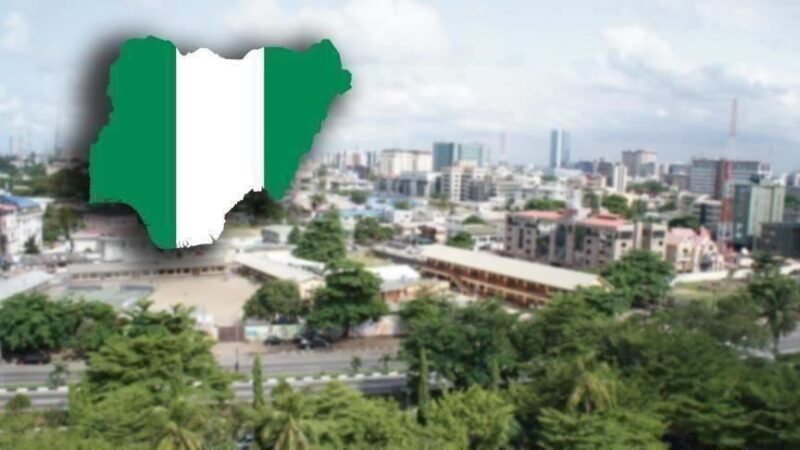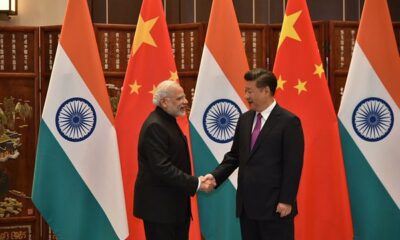National Issues
Salient Reasons Why Warmongers Should Not Be Urged On -By Isaac Asabor

It is not an exaggeration to say that after suffering a recession and full year of negative growth in 2016 that Nigeria, Africa’s largest economy started to recover slowly. Data from National Bureau of Statistics in early 2020 showed that the pace of recovery remains slow despite noting a milestone; as at then, Gross Domestic Product (GDP) grew by 2.55%, being the highest quarterly growth rate since the 2016 recession. Overall, Nigeria’s economy grew 2.27% in 2019, slightly higher than it did in the preceding year. And, as is often the case, Nigeria’s economic growth was anchored on its oil exports with production levels remaining stable throughout 2019.
Like a recuperating sick man whose family members and friends were praying and hoping that he will fully recover, and again hit by another variant of sickness, Nigeria’s economy was in early 2020, precisely in the month of March confronted with a crisis that came in the form of COVID-19 pandemic like no other. The pandemic no doubt disrupted its social and economic order at lightning speed and on a scale that no one ever witnessed in history. The virus, apart from causing tragic loss of life, necessitated series of economic lockdown ordered at different times by the federal government on the one hand, and the state government on the other hand. The measures were no doubt understandable by Nigerians as they were needed to fight the pandemic that affected billions of people worldwide. What was normal just to everyone, such as going to school, going to work, being with family and friends, became a huge risk, and at the same time put the economy on hold.
Just as the lockdown that was necessitated by COVID-19 further threw the economy into a more difficult situation, and in turn threw businesses into shamble, EndSARS sparked off to the consternation of many across country with a wild protest against police brutality, and businesses activities were highly disrupted despite being hard-hit by the coronavirus.
As witnessed by all Nigerians, the protests and the government response brought Lagos and Abuja to standstill, and disrupted agricultural supply chains as well blocked the movement of people and goods. Due to the protests and roadblocks, it was difficult for businessmen to move their products from point of purchase to point of sale. Also, throughout the lockdown, on a day-to-day basis people could not make it to work and move around the states.
As if the foregoing self-destructive harms that were done to the country’s economy were not enough, going by recent reports in the media about the quit notices given to herdsmen in Oyo State and Ondo State, respectively, there is no denying the fact that another deadly blow awaits the economy if not preempted by leaders that have being mandated by the constitution to do so.
It is not an exaggeration to say that if the looming ethnic crisis is not dispassionately managed by the leaders that it would unarguably lead to instability and breakdown, along with violent conflict which will no doubt pose significant risks to state and regional security. We should not forget that recent civil conflicts take place within states, and the majority of their victims were serious minded people going about their businesses. More so, conflict and fragility impede efforts to reduce poverty and the prevention of conflict through development is cheaper than dealing with the aftermath of conflict.
To my view, there is an urgent need for the federal government to dispassionately weigh in on this looming conflict that will push Nigeria to another round of economic crisis. The reason for this call cannot be farfetched as when violent conflict breaks out, development is derailed. Worse still, development would automatically be put on reverse.
Permit me to say that this appeal could not have come at a better time than now as another round of economic hardship will be unpleasant to Nigeria nay Nigerians. It would be unpleasant as the consequences of high unemployment rate, falling incomes, and reduced economic activity can have lasting consequences on people, and in the same vein exacerbate the rate of crime. Besides, when a recessed induced job loss and falling incomes come into force coupled with what Nigerians are already faced with, it can force families to delay or forgo a tertiary education for their children. Also, frozen credit markets and depressed consumer spending can stop the creation of otherwise vibrant small businesses while larger companies may delay or reduce spending on Research and Development (R&D).
It is expedient to say in this context that we are always in the habit of massaging the collective ego of our children by reassuring them that they are “The Leaders of Tomorrow”. How sincere are we when we have made them to be witnessing crisis upon crisis more than any generation that the country has had in decades? Have we forgotten that there is substantial evidence that economic outcomes are passed across generations. As such, economic hardships that are crisis-induced today for parents will mean more economic hurdles for their children. In a similar vein, while it is often said that deficits can cause transfers of wealth from future generations of taxpayers to the present, are we not aware that this cost must also be compared with the economic consequences of recessions that are also passed to future generations?
In this context, permit this writer to warn that recession should not be thought of as a one-time event that stresses individuals and families for a couple of years. Rather, economic downturns will impact the future prospects of all family members, including children, and will have consequences for years to come.
In fact, the round of recession which warmongers are triggering, if their evil plan ever comes to fruition, God forbid, can lead to higher unemployment, lower wages and incomes, and lost opportunities. Not only that, education, private capital investments, and economic opportunity will no doubt suffer in the looming downturn, and the effects will be long-lived.
It will be an understatement to say that the Yorubas, contrary to the way they are erroneously perceived by some few Nigerians, are very cordial, sociable and accommodating. It can equally be said that hospitality and greetings are inseparable from the Yorubas because that is just the way they are naturally. However, an African proverb says, “A lecherous man should not complain when he is slapped by a damsel for touching her navel.” Interpreted in this context, it is not dispassionate to say that the Fulani Herdsmen have crossed their boundary by going beyond the pasturing of their herds to killing, maiming, raping and destroying the farmlands of their host. It is understandable that there is no way anyone could have done that to his fellow brothers and sisters, and expect them to tell him “Thank you”.
Be that as it may, it is expedient to recall with nostalgia in this context how Fulani Herdsmen were almost inspiring the children (including this writer) in the 70s that children were wont to playfully imitate them by herding goats with long sticks in their hands amidst the scream “Kai, kai. Kai” at the herd of goats. We playfully used sticks while mimicking Fulani Herdsmen as we never saw them with AK-47 which they now carry today with reckless abandon.
Also, the “Abokis” as they were then called, were very friendly. Even the ones that usually come to our village’s 4-day interval market to buy various food items always rent a room and stay in the village for some days before going back to the north. They were friendly even with their passable English. However, at a point, still in the 70s, children began to dread them by derogatorily calling them “Ogudada”. For the sake of clarity, “Ogudada” simply means murderer. But the mutual suspicion did not result to any conflict as much as I can recall. Then, when called Ogudada they would jovially respond with the same derogatory word in a retaliatory manner. If I may ask, how come the Fulani Herdsmen no more friendly and no more value the lives of the people that have been hosting them and their Cattles for ages? If they were to be in their sane self I do not think there should be any issue about a peaceful co-existence. There is no more love lost between the farmers or better still the rural dwellers and the Abokis. Where did we get it wrong?
At this juncture, this writer is pleading should be seeing Nigeria as the bigger picture as we cannot add to the challenges we already have on ground. We should eschew supporting warmongers as they do not meant well for the country.



















